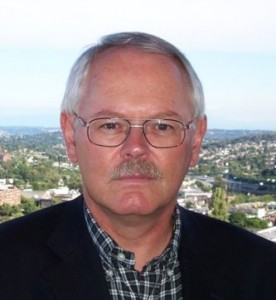Where can all of us believers come together beyond the divisions created by history, dogma, denomination and religion? Where is there a place all people of sincere heart can find common ground and worship together?
That place is found in the ecumenical and interreligious pursuit of spirituality, and our theology schools and seminaries need to create this place within their academic vision and structures.
What is spirituality as an academic discipline within our theology schools and seminaries? It has actually been around a long time, though under different names. In Roman Catholic circles, formerly it was handled piecemeal as moral theology, liturgy, ascetical theology and as mystical and devotional literature. In Protestant and Evangelical circles (where, until recently, mystical and devotional literature were distrusted) there were courses on discipleship, worship and Christian ethics.
So what is spirituality as an area of study? At the risk of a vast oversimplification, let me propose an analogy as a way of understanding how spirituality relates to theology and dogma. Spirituality is related to theology and dogma akin to how an actual game of sports is related to the rule book of that sport.
For example, for the game of baseball there is a rulebook, one initially codified and then periodically amended through the many years the game has been played. To play the game today one has to stay within those rules. There is no game outside those rules. However, while these rules critically dictate the lines within which the game has to be played, they are not the game itself. They merely dictate how it is to be played and ensure it is played in a fair manner.
In essence, that is the critical role of theology and dogma. They are the rulebook for how we need to discern faith and religious practice as we live out our discipleship, if we are legitimately to call ourselves Christian. But, while they make the rules, spirituality is the actual game; it’s how in actual practice we live out our faith and discipleship.
Thus, spirituality takes in morality and ethics, worship, ascetical theology, mystical theology, devotional theology and everything else we do in living out our discipleship. Theology makes the rules, while spirituality tries to instill the motivation, the fire, the hope, and the practical guidance for the game itself, lived discipleship.
I offer this little apologia for spirituality as an academic discipline in view of affirming that spirituality is that place where believers can come together in a common heart beyond the long-standing divisions created by history, dogma, ecclesiology and different notions of faith. Spirituality is a place where we can meet in a communion of faith that takes us (at least in that place and moment) beyond our different histories, our different denominations, our different religions and our different notions of faith.
I know this is true because I have seen and am seeing it firsthand. Oblate School of Theology, where I teach, has an Institute of Contemporary Spirituality in which I see Roman Catholics, Protestants, and Evangelicals of every persuasion studying together, searching together and praying together in a way that denominational differences simply don’t enter into. Everyone, irrespective of denomination, is searching for the same things: What does it mean to be a disciple of Jesus today? How does one genuinely pray? How do we sustain faith in a secular world that so easily swallows us whole? How can we pass our faith on to our own children? How can we be both prophet and healer in our bitterly divided world? What is a faith-based response to injustice? How does someone age and die well? What insights and grace can we draw from the deep wells of Christian mysticism and hagiography to help guide our lives?
Everyone has the same questions, and everyone is searching at the same places.
Denominationalism recedes when spirituality takes over.
Moreover, this doesn’t just pertain to being together beyond the differences of denominations among Christians; the same holds true vis-a-vis our separation from other world religions. The questions we are grappling with as Christians are the same questions that Hindu, Buddhist, Islamic, Taoist, and other believers are grappling with, and they are looking to us for help even as we are looking to them for help. In spirituality, Christians learn from Sufi Islamic mystics, even as Islamic believers delve into Mariology and Christian mysticism. Buddhist, Hindu, and Taoist believers pick up the Spiritual Exercise of St. Ignatius, even as Christians learn from various Buddhist and Hindu methods of meditation.
Jesus assured us that in God’s house, there are many rooms. Spirituality is one of those rooms. Spirituality is the room where all who are caught up in a common need, common search and common hope can bracket for a time their denominational and religious differences and search together.
Don’t get me wrong: This doesn’t take away with our differences, but it gives us a place where we can be in a community of life and faith with each other, beyond those differences.
Oblate Fr. Ron Rolheiser is a theologian, teacher and award-winning author. He can be contacted at www.ronrolheiser.com.

Oblate Fr. Ron Rolheiser
